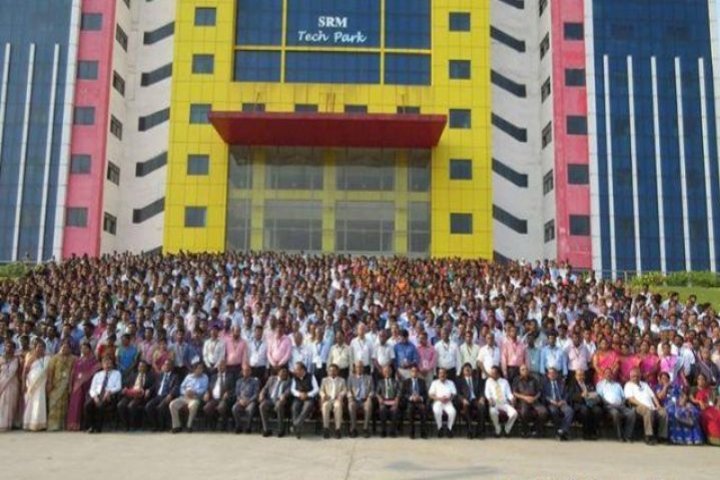
Genetic Engineering Course Details - Fees, Subjects, Syllabus, Duration, Eligibility, Career Scope
Degrees offered: B.E /B.Tech, M.E /M.Tech., Ph.D, M.Sc., P.G.D
What is Genetic Engineering
Genetic Engineering is a key branch of modern genetics that is applied globally for diverse purposes. It involves modifying DNA in living organisms to serve specific purposes, including agriculture, medicine, and research. One major application includes correcting genetic disorders such as cystic fibrosis using advanced gene editing tools and technologies.
Courses in Genetic Engineering are available across various levels, including B.Tech/BE, M.Tech, M.Sc, PhD, and PG Diploma. Several Indian institutes and universities offer these programmes. The curriculum typically covers core subjects such as DNA structure, gene expression, molecular biology, biophysics, biochemistry, and genome engineering techniques.
After completing a Genetic Engineering course, students can pursue roles such as Genetic Engineer, Research Scientist, Biotechnologist, or Clinical Geneticist. Opportunities are available in research labs, healthcare, and biotech firms. Top recruiters include Biocon, Bharat Biotech, ICMR, NII, Reliance Life Sciences, and the Serum Institute of India.
Genetic Engineering: Highlights
Genetic Engineering is a specialised field within biotechnology that focuses on modifying genetic material to develop improved organisms, medicines, and treatments. The course is offered at undergraduate, postgraduate, and doctoral levels with strong career prospects. Below are the key highlights of the Genetic Engineering course for reference.
| Particulars | Values |
|---|---|
Branch Name | Biotechnology |
Degree | |
Eligibility | UG: 10+2 in Science PG: Bachelor's in Biotechnology or relevant discipline |
Admission Process | Entrance Exams or Merit-Based |
Entrance Exam | JEE Main, JEE Advanced, GATE, LPU NEST, CUET PG |
Average Course Fees | Rs. 4.8 Lakhs |
Job Profiles | Genetic Engineer, Research Scientist, Biotechnologist, Clinical Geneticist, Bioinformatician, Molecular Biologist, Biomedical Engineer and Quality Control Analyst |
Average Salary | Rs. 5 LPA |
Top Recruiters | Biocon, Serum Institute of India, Bharat Biotech, Indian Council of Medical Research (ICMR), Reliance Life Sciences, National Institute of Immunology (NII) and Dr. Reddy's Laboratories |
Specialisation or Similar Ones
Several closely related fields to Genetic Engineering offer similar academic and career paths. Degrees such as Medical Genetics, Agricultural Genetics, Industrial Biotechnology, Genomics, Cell Biology, Biomedical Engineering, and Bioinformatics share overlapping concepts and applications. The table below highlights some specialisations associated with or similar to Genetic Engineering.
M.Tech Research Molecular Reproduction, Development and Genetics | Ph.D Molecular Biology and Genetic Engineering |
MSc Genome Engineering | PGD Gene Manipulation Technology |
B.Tech Biotechnology in Genetic Engineering | MSc Agriculture, Genetic and Plant Breeding |
Top Genetic Engineering Colleges in India
Several reputed public and private institutions across India offer courses in Genetic Engineering. The course fee usually varies based on the level of the programme, the type of college, and its location. Below is a list of some of the top colleges in India that provide Genetic Engineering courses.
| Top Colleges | Fees |
|---|---|
Rs. 3 Lakhs | |
Rs. 11 Lakhs | |
Rs. 8.62 Lakhs | |
Rs. 6.30 Lakhs | |
Rs. 1.07 Lakhs | |
Rs. 28,400 | |
Rs. 3.26 Lakhs | |
Rs. 8 Lakhs | |
Rs. 5.40 Lakhs | |
- | |
- |
Note: The fee structure provided above can be for any particular Genetic Engineering course (Diploma/ Degree/PGD).
Eligibility Criteria (UG & PG) of Genetic Engineering
Genetic Engineering programmes have varied eligibility criteria based on the level of study and institutional guidelines. Each course, whether undergraduate or postgraduate, may have different academic and entrance requirements. Candidates must check the specific criteria before applying. Below are the general eligibility details for UG and PG Genetic Engineering courses:
Eligibility Criteria for UG Courses
The eligibility criteria for undergraduate Genetic Engineering courses outline the requirements candidates must fulfil for admission to their preferred institute. Students are advised to visit the official website of the respective institute to verify specific criteria. Below is an overview of the general eligibility for UG courses in Genetic Engineering.
- Students must have passed 10+2 with a minimum of 50 per cent marks from a recognised national or state-level education board.
- They should have studied Physics, Chemistry, Biology or Mathematics as core subjects in their higher secondary education.
- Some institutes may conduct entrance exams as part of the admission process.
Top Entrance Exams for UG Courses
Some colleges and universities offering Genetic Engineering programmes require candidates to appear for entrance examinations. Qualifying for these exams is essential to proceed with the admission and counselling process. The exams assess students' knowledge in relevant subjects. Listed below are a few important entrance exams accepted for Genetic Engineering courses at the undergraduate level.
| Exam Name | Level | Conducting Body | Exam Schedule |
|---|---|---|---|
National | NTA | ||
National | IIT Bombay | ||
University | LPU |
Eligibility Criteria for PG Courses
To pursue postgraduate courses in Genetic Engineering, candidates must meet the eligibility requirements specified by the institution. These typically include holding a relevant undergraduate degree with the required minimum marks. Applicants should verify the specific admission criteria of their chosen university before applying. Below are the general PG eligibility conditions.
- Candidates must hold a Bachelor's degree in Genetic Engineering, Biotechnology, Molecular Biology, or a related field from a recognised university.
- A minimum of 50-60 per cent aggregate marks in the undergraduate course is typically required.
- Some institutions may require candidates to qualify for entrance exams.
- Applicants may also need to attend personal interviews or counselling sessions as part of the selection process.
Top Entrance Exams for PG Courses
Candidates aspiring to pursue postgraduate courses in Genetic Engineering are often required to qualify for specific entrance tests conducted by universities or other bodies. These tests assess the candidate’s subject knowledge and analytical skills. Mentioned below are some of the qualifying examinations commonly accepted by institutions for PG admission.
| Exam Name | Level | Conducting Body | Exam Schedule |
|---|---|---|---|
National | IIT Kanpur | ||
National | NTA |
College Predictors VIEW ALL
Scope of Genetic Engineering in India and Abroad
Genetic Engineering opens up various career paths in biotechnology, pharmaceuticals, agriculture, and healthcare. With innovations like CRISPR and gene therapy, professionals are in demand for roles in genetic diagnostics, research, and therapeutic development. Graduates can work in labs, hospitals, and biotech firms focused on solving complex biological and medical challenges.
India’s growing biotech and pharma industries create strong job prospects for genetic engineers. Opportunities exist in developing genetically modified organisms, vaccine research, molecular diagnostics, and clinical trials. Those inclined towards research can pursue PhDs and lead projects in national or international institutes, contributing to advancements in genomic science and precision medicine.
Course Fees Genetic Engineering
| Minimum Fees | Maximum Fees | |||
|---|---|---|---|---|
| Private | Government | Private | Government | |
| UG | ||||
| PG | ||||
| DOCTORAL | ||||
Course Subjects
The Genetic Engineering syllabus at both undergraduate and postgraduate levels is designed to provide a strong foundation in molecular biology, genetics, and biotechnology, along with practical lab training and research exposure. Students gain knowledge in gene expression, genetic modification, and bioinformatics, preparing them for advanced careers or research. Here are the UG and PG syllabus details.
Genetic Engineering Syllabus for UG Courses
The undergraduate syllabus for Genetic Engineering may vary across institutions. Common subjects include Principles of Genetics, Fundamentals of Computing, and Internet Programming. The table below outlines the B.Tech Genetic Engineering syllabus offered by the Bharat Institute of Higher Education, providing a reference for students interested in the course structure.
Semester 1 | |
English – I | Engineering Mathematics-I |
Engineering Physics – I | Engineering Chemistry - I |
Cell Biology | Fundamentals of Computing and Programming |
Personality Development | Basic Civil Engineering |
Basic Mechanical Engineering | Basic civil and mechanical Engineering practice lab, Computer Practice Lab |
Physics and Chemistry Lab | - |
Semester 2 | |
English – II | Engineering Mathematics - II |
Engineering Physics - II | Engineering Chemistry - II |
Internet Programming | Foreign/Indian language |
Principles of genetics | Basic Electrical and Electronics Engineering |
Internet Practices Lab | Computer Practices Lab |
Basic Electrical and Electronics Engineering Practices Lab | Physics and Chemistry Lab II |
Semester 3 | |
Enzyme Technology | Principles of Genetic Engineering |
Immunology | Microbiology |
Principles of Biochemistry | Biostatistics |
Microbiology Laboratory | Biochemistry Laboratory |
Technical seminar | - |
Semester 4 | |
rDNA Technology | Molecular Biology |
Environmental studies | Genomics and Proteomics |
Bio-organic chemistry | Basics of Bioinformatics |
Molecular Biology Lab | Cell Biology Lab |
Technical seminar-II | - |
Semester 5 | |
Principles of Management and Ethics | Research Methodology |
Cytogenetics | Metabolic engineering |
Biophysics | Plant Tissue Culture |
Elective-I | Immunology Laboratory |
Plant Genetic Engineering Laboratory | Mini Project-II |
Semester 6 | |
Agri, Veterinary and Medical Informatics | Bio-Pharmaceutical technology |
Genes and Diseases | Gene Therapy |
Cancer Biology | Elective-II |
Gene Cloning Laboratory | Bioinformatics Laboratory |
Semester 7 | |
Biosafety, Bioethics, IPR & Patent | Animal Cell Culture and Transgenic Technology |
Nanotechnology in Healthcare | Stem Cell Biology |
Elective-III | Elective- IV |
Genome Analysis Laboratory | Animal Cell Culture Laboratory |
Project Phase-I | Implant Training |
Semester 8 | |
Elective –V | Elective – VI |
Elective – VII | Project work |
Genetic Engineering Syllabus for PG Courses
The postgraduate syllabus for Genetic Engineering focuses on advanced concepts such as Molecular Genetics, Immunobiology, and Regulation of Gene Expression. It aims to equip students with in-depth knowledge and research skills in genetic manipulation and biotechnology. Provided below is the M.Tech Genetic Engineering syllabus offered by SRM Institute of Science and Technology, offering an overview of the core subjects covered at this level.
Semester 1 | |
Molecular Genetics | Biological Chemistry |
Immunobiology | Advanced Biostatistical Methods |
Career Advancements Course for Engineers- I | Programme Elective- I |
Semester 2 | |
Recombinant DNA Technology | Regulation of Gene Expression |
Sequence Analysis & Structure Prediction | Career Advancement Course For Engineers -II |
Programme Elective 2 | Programme Elective 3 |
Interdisciplinary Elective | - |
Semester 3 | |
Programme Elective- 4 | Programme Elective- 5 |
Programme Elective- 6 | - |
Semester 4 | |
Project Phase II | - |
Careers in Genetic Engineering
Genetic Engineering professionals are at the forefront of innovation in fields like gene therapy, synthetic biology, and agricultural biotechnology. Their work involves developing genetically modified organisms (GMOs), improving disease resistance in crops, and contributing to breakthroughs in personalised treatments. With the rise of DNA-based technologies, their role has become increasingly valuable in solving real-world biological challenges.
As the industry evolves, professionals trained in Genetic Engineering find opportunities across pharmaceutical R&D, clinical diagnostics, forensic science, and bioinformatics. These roles require a strong grasp of molecular biology, advanced laboratory techniques, and computational tools. Whether working in biotech startups or multinational firms, Genetic Engineering graduates are well-positioned for impactful and future-ready careers.
Upcoming trends
Genetic Engineering is evolving rapidly with the rise of precision medicine, AI integration, and next-generation genomic tools. The field is shifting towards more accurate, ethical, and efficient methods of gene editing and therapy. These innovations are revolutionising healthcare, agriculture, and industrial biotechnology, making Genetic Engineering a key driver of biological advancement.
- CRISPR-Cas9 and other gene-editing tools for precise genome modification
- Gene therapy advancements for inherited disease treatment
- Synthetic biology applications in pharmaceuticals and agriculture
- AI and Machine Learning for genomic data interpretation
- Epigenetic engineering for controlling gene expression
- Personalised medicine through genome sequencing
- Use of nanotechnology in gene delivery systems
- Ethical frameworks and biosafety protocols for responsible innovation
Job Profiles and Top Recruiters
India is emerging as a major centre for affordable generic medicine production, leading to rapid growth in biotech firms. This expansion has boosted the demand for skilled professionals in Genetic Engineering. Graduates can explore diverse job roles across the public and private sectors. Some key job opportunities are listed in the table below:
| Job Profiles | Description |
|---|---|
Genetic Engineers | Genetic Engineers work on modifying the genetic makeup of organisms to enhance traits or correct defects. They are involved in research, gene therapy, and the development of genetically modified organisms (GMOs). |
Research Scientists conduct experiments to explore new genetic technologies and improve existing ones. They work in laboratories across academic, industrial, and clinical research settings. | |
Biotechnologists apply genetic engineering techniques in fields like agriculture, medicine, and environmental science. They develop products such as vaccines, biofuels, and genetically modified crops. | |
Geneticists study genes, genetic variation, and heredity in organisms using advanced genetic tools. They contribute to diagnosing genetic disorders and advancing personalised medicine. | |
Bioinformatics Scientists analyse genetic and genomic data using computational tools. They assist in mapping genes and interpreting complex biological datasets for research and clinical use. | |
Quality Controllers ensure that genetically engineered products meet safety and regulatory standards. They perform rigorous testing and documentation in the biotechnology and pharmaceutical industries. |
Top Recruiters
- Biocon
- Serum Institute of India
- Bharat Biotech
- Indian Council of Medical Research (ICMR)
- Reliance Life Sciences
- National Institute of Immunology (NII)
- Dr. Reddy's Laboratories
Average Salary
The average salary in Genetic Engineering depends on factors such as the candidate’s expertise, job role, organisation, and geographic location. With experience and advanced skills, professionals can expect rewarding pay scales. Below is an estimate of the average salaries for various popular roles in the Genetic Engineering field:
| Job Profiles | Average Salary (LPA) |
|---|---|
Genetic Engineer | Rs. 5 LPA |
Research Scientist | Rs. 9.6 LPA |
Biotechnologist | Rs. 2.9 LPA |
Clinical Geneticist | Rs. 2.6 LPA |
Bioinformatician | Rs. 5.7 LPA |
Quality Control Analyst | Rs. 4.6 LPA |
Source: AmbitionBox and Glassdoor
Required Skillset for Genetic Engineering
Genetic Engineering is a hands-on and research-intensive field requiring a strong blend of academic knowledge and practical expertise. Professionals must be capable of designing experiments, analysing complex data, and working with advanced tools. The following skills are highly valued in this domain:
- Molecular Biology Techniques
- Laboratory Handling and Safety
- Bioinformatics and Computational Skills
- Research and Analytical Thinking
- Precision and Attention to Detail
- Problem-Solving Abilities
- Communication and Documentation Skills
- Patience and Perseverance
- Team Collaboration
- Critical Thinking and Innovation
Course Curriculum for Genetic Engineering
The Genetic Engineering curriculum integrates theoretical knowledge with practical training, focusing on gene structure, genetic modification, and molecular techniques. Students gain expertise in DNA technologies, research methods, and data analysis through classroom learning and lab-based projects. Below are the key areas typically covered in the Genetic Engineering curriculum.
- Molecular Biology and Genetic Principles
- Genetic Engineering Techniques (e.g., CRISPR, PCR)
- Biochemistry and Cell Biology
- Genomics and Proteomics
- Recombinant DNA Technology
- Bioinformatics and Computational Biology
- Immunology and Microbial Genetics
- Biotechnology and Genetic Applications
- Research Methodology and Scientific Writing
- Laboratory Safety and Ethics in Genetic Research
Popular Genetic Engineering Entrance Exams in India
Frequently Asked Questions (FAQs)
Question: What are the prospects after completing a Genetic Engineering degree?
Answer :
Graduates can explore careers in biotech companies, pharmaceutical firms, research labs, agricultural R&D, or pursue PhDs. With emerging tech like gene therapy and synthetic biology, the field has expanding global relevance.
Question: How do I choose between a BSc and BTech in Genetic Engineering?
Answer :
A BSc focuses more on theoretical and biological aspects, ideal for those inclined toward research, while a BTech combines biology with engineering principles and is suited for technical roles in biotech industries.
Question: What kind of research or project work can I expect during my Genetic Engineering degree?
Answer :
Students often work on projects related to gene cloning, DNA analysis, CRISPR editing, GMO development, or disease gene mapping. Lab-based research is a major component at both the UG and PG levels.
Question: Can I pursue Genetic Engineering if I didn't take Mathematics in Class 12?
Answer :
Yes, some universities allow students with Biology, Physics, and Chemistry (PCB) to apply for BSc or certain BTech Genetic Engineering courses. However, Maths may be compulsory for engineering-specific or computational biology programmes.
Question: What are the top entrance exams in the field of Genetic Engineering?
Answer :
The top entrance exams for Genetic Engineering are JEE Main, JEE Advanced, and GATE exam.
Question: Is coding or computer knowledge necessary for a career in Genetic Engineering?
Answer :
It's not mandatory at the beginner level, but basic knowledge of programming and bioinformatics tools is highly recommended. Many genetic engineering roles today involve data analysis, especially in areas like genomics and molecular modelling.
Question: What are the subjects taught in Genetic Engineering?
Answer :
The course curriculum of Genetic Engineering depends on the institute and level of education. Some of the subjects offered in Genetic Engineering are Cytogenetics, Plant tissue Culture, Bio-Pharmaceutical technology, and Nanobiotechnology in Healthcare.
Question: What is Genetic Engineering?
Answer :
Genetic Engineering is a field of biotechnology that involves directly altering the DNA or genetic makeup of an organism to achieve specific traits or outcomes. It is widely used in medicine, agriculture, and research to develop genetically modified organisms (GMOs), treat genetic disorders, and study gene functions.
Questions related to Genetic Engineering
I have taken PCMB for 11 and 12 and I also want to give JEE . However in future I want to approach genetic engineering . Could you please help me with the way I should approach my career ?
Hi
hope you doing well
It's an exciting choice to Pursue a career in genetic engineering, especially with your background in PCMB.
Firstly focus on your Jee prepration: Since you plan to give JEE, focus on mastering Physics, Chemistry, and Mathematics. Your Biology knowledge will also be beneficial, especially in
Question : If $\tan \theta=\frac{8}{15}$, then the value of $\sqrt{\frac{1-\sin \theta}{1+\sin \theta}}$ is:
Option 1: $\frac{1}{5}$
Option 2: $\frac{3}{5}$
Option 3: $\frac{2}{5}$
Option 4: $\frac{4}{5}$
Correct Answer: $\frac{3}{5}$
Solution :
$\tan \theta=\frac{8}{15}=\frac{\text{Perpendicular}}{\text{Base}}$
$\therefore$ Hypotenuse = $\sqrt{8^2+15^2}=\sqrt{289}= 17$
So, $\sin \theta=\frac{8}{17}$
$\sqrt{\frac{1-\sin \theta}{1+\sin \theta}}=\sqrt{\frac{1-\frac{8}{17}}{1+\frac{8}{17}}}=\sqrt{\frac{\frac{9}{17}}{\frac{25}{17}}}=\sqrt{\frac{9}{25}}=\frac{3}{5}$
Hence, the correct answer is $\frac{3}{5}$.
is there any tamil nadu colleges offering seat for bsc genetics or genetic engineering
Hello Swetha
There are many genetic engineering colleges in Tamil Nadu, few of them are listed below
ANJAC Sivakasi , Tamil Nadu
Sri Ramchandra Institute of higher education and research, Chennai, Tamil Nadu
NICHE kanyak umari , Tamil Nadu
Sri Ramchandra medical college, Chennai, Tamil Nadu ,
Madras university, Tamil
Hi is there is course B TECH genetic engineering in lovely university. and if yes than how i can get admission
Hello student,
Lovely professional University is a is a good private institute where there are total 54 BTech courses situated at Phagwara Punjab. This institute already has secured 51st rank in the engineering category in NIRF Ranking. But sorry to say you there is no b.tech of genetic engineering in
Can I pursue a Masters in Genetic Engineering after a B.Tech in Bio Engineering?
Yes you can apply for masters degree in genetic engineering after completing of Technology in bio engineering. The eligibility criteria of masters of genetics engineering is to complete bachelor degree in either biochemistry or biotechnology or biomedical sciences or genetics etc with at least 55% marks in the aggregate. The













 Answer later
Answer later














